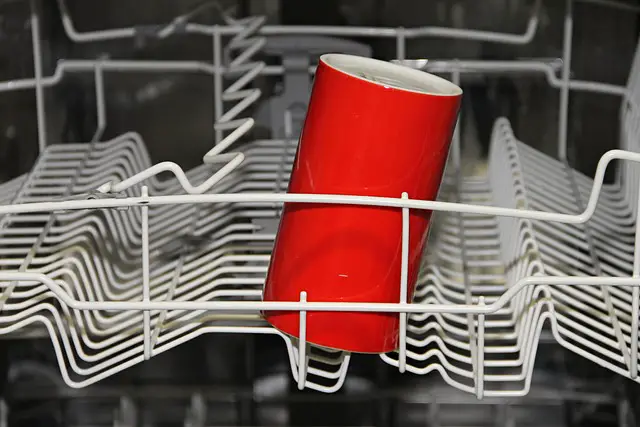Connecting a dishwasher to a regular outlet is a common question for homeowners who are considering installing a dishwasher or replacing an existing one.
It’s essential to understand the power requirements and electrical considerations to ensure a safe and efficient setup.
Connecting a dishwasher to a regular outlet is typically feasible for residential dishwashers with standard power requirements (120V, 15-20A). However, it’s important to consider factors such as the dishwasher’s power consumption, the length of the power cord, existing electrical wiring, and compliance with local electrical codes.
In this article, we will explore whether connecting a dishwasher to a regular outlet is feasible and discuss the factors and steps involved in the process.
Understanding Dishwasher Power Requirements
Dishwashers typically require both voltage and current to function properly. Most residential dishwashers in the United States operate on 120 volts (V) and draw between 15 and 20 amps (A).
It’s crucial to be aware of these power specifications to determine if your regular outlet can meet the dishwasher’s needs.
Additionally, it’s worth noting that compact or portable dishwashers may have different power requirements compared to standard built-in models.
Types of Electrical Outlets
In the realm of dishwashers, there are different types of electrical outlets to consider:
- Standard household outlets (120V, 15-20A): These outlets are commonly found throughout homes and are used for various appliances and electronic devices.
- Dedicated dishwasher outlets (120V, 15-20A): Specifically installed for dishwashers, these outlets are strategically placed near the dishwasher location.
- Specialized dishwasher outlets (240V, 20-30A): These outlets operate at higher voltage and amperage and are typically used for heavy-duty dishwashers or commercial settings.
Can a Dishwasher Be Connected to a Regular Outlet?
While it is possible to connect a dishwasher to a regular outlet, several factors need to be considered to ensure a safe and compliant installation.
These factors include the dishwasher’s power consumption, the length of the power cord, existing electrical wiring in the kitchen, and adherence to local electrical codes and regulations.
Evaluating these factors will help determine if your regular outlet can adequately power the dishwasher.
Factors to Consider
- Dishwasher Power Consumption: Check the manufacturer’s specifications to determine the power consumption of your dishwasher. It’s crucial to ensure that the dishwasher’s power requirements fall within the capacity of your regular outlet.
- Length of the Power Cord: Assess the distance between the dishwasher and the regular outlet. If the cord is too short, you may need to use an extension cord, but be cautious as it can impact the appliance’s performance and safety.
- Existing Electrical Wiring: Evaluate the state of your kitchen’s electrical wiring. Older homes may have outdated wiring that doesn’t meet current safety standards. It is recommended to have a professional inspect and upgrade the wiring if necessary.
- Local Electrical Codes and Regulations: Familiarize yourself with the electrical codes and regulations in your area. Some jurisdictions may have specific requirements for dishwasher installations, including the use of dedicated circuits or professional assistance.
Read also my article: Ground Wire 101: The Essential Ingredient for a Safe Coffee Maker.
Steps to Connect a Dishwasher to a Regular Outlet
If you determine that your regular outlet can safely power the dishwasher, follow these steps to connect it:
- Shutting off Power to the Circuit: Locate the circuit breaker or fuse corresponding to the dishwasher’s electrical supply and turn it off.
- Removing the Dishwasher’s Front Panel: Access the dishwasher’s wiring area by removing the front panel or kick plate.
- Connecting the Power Cord: Attach the dishwasher’s power cord to the terminal box or junction box. Follow the manufacturer’s instructions for proper connection.
- Securing the Power Cord: Use cable ties or clamps to secure the power cord to the dishwasher and prevent it from interfering with the dishwasher’s components.
- Reinstalling the Front Panel: Once the power cord is securely connected, reinstall the dishwasher’s front panel or kick plate.
Safety Precautions and Considerations
When connecting a dishwasher to a regular outlet, it’s crucial to prioritize safety:
- Grounding the Dishwasher: Ensure that the dishwasher is properly grounded to prevent electrical shocks and hazards.
- Using a Properly Sized Circuit Breaker or Fuse: Check that the circuit breaker or fuse is correctly rated for the dishwasher’s power requirements.
- Avoiding Overloading the Electrical Circuit: Be mindful of other appliances or devices on the same circuit to avoid overloading it, which can lead to electrical failures or tripped breakers.
- Seeking Professional Help: If you are unsure or uncomfortable with electrical work, it is advisable to consult a licensed electrician to ensure a safe and compliant installation.
Alternatives to Connecting a Dishwasher to a Regular Outlet
If connecting a dishwasher to a regular outlet is not feasible or safe in your situation, consider these alternatives:
- Hiring a Licensed Electrician for a Dedicated Circuit: An electrician can install a dedicated circuit specifically for your dishwasher, ensuring optimal performance and compliance with electrical codes.
- Using an Extension Cord or Adapter: In certain cases, an extension cord or adapter may be used temporarily, but it is essential to choose a cord that is suitable for dishwasher usage and follow safety guidelines.
- Opting for a Compact/Portable Dishwasher: If power constraints are a significant issue, consider choosing a compact or portable dishwasher that operates on lower power requirements.
Conclusion
While connecting a dishwasher to a regular outlet is possible in some scenarios, it’s vital to assess the power requirements, existing electrical infrastructure, and local codes.
Prioritize safety by adhering to electrical standards, and consider professional assistance if needed. By following these guidelines, you can enjoy the convenience of a dishwasher without compromising safety or performance.
Want to learn more about electricity? Check my YouTube channel!
Are You An Electrical Engineer or Electrician?
Install my Free On Google Play Now! It’s 100% Free
The staff I recommend (Amazon Affiliate Links to products I believe are high quality):
- Economy 120 Volt/60Hz AC Power Source – Step-Down Voltage & Frequency Converters 1800W
- UNI-T Digital Multimeter Tester UT139C
- 50-Amp Extension Cord for RV “100ft”
- Voltage Stabilizer 110/220v
- Hair Dryer “best selling“
- TOSHIBA EM131A5C-BS Countertop Microwave Ovens
Disclaimer: This contains affiliate links to Amazon products. I may earn a commission for purchases made through these links.


